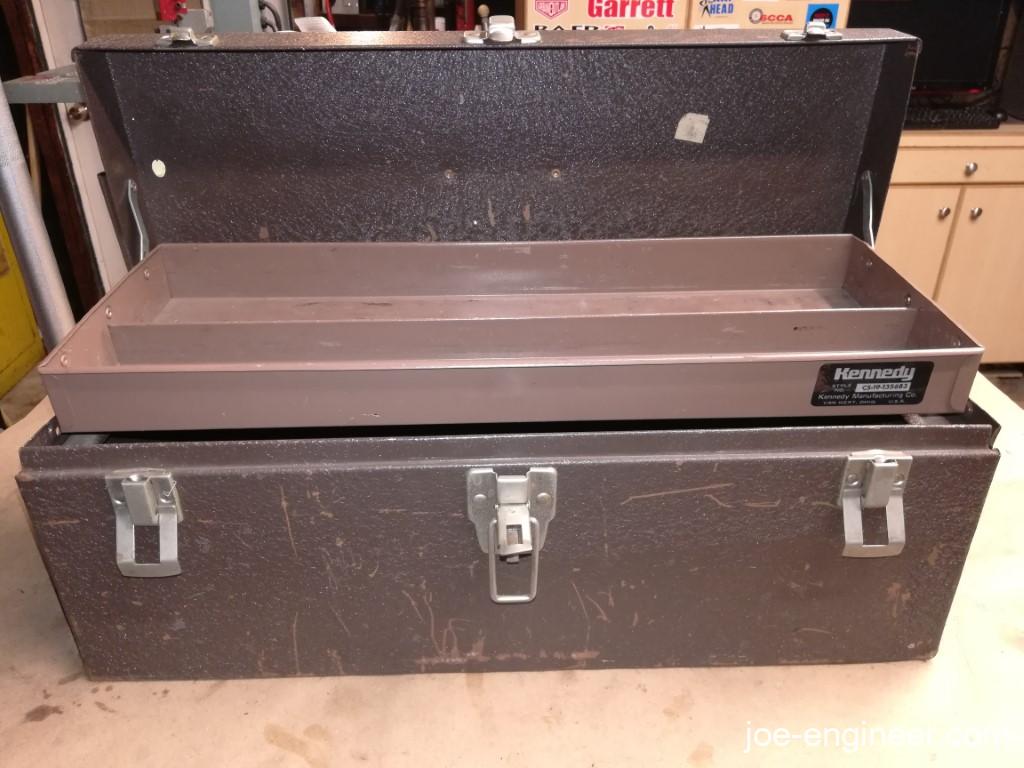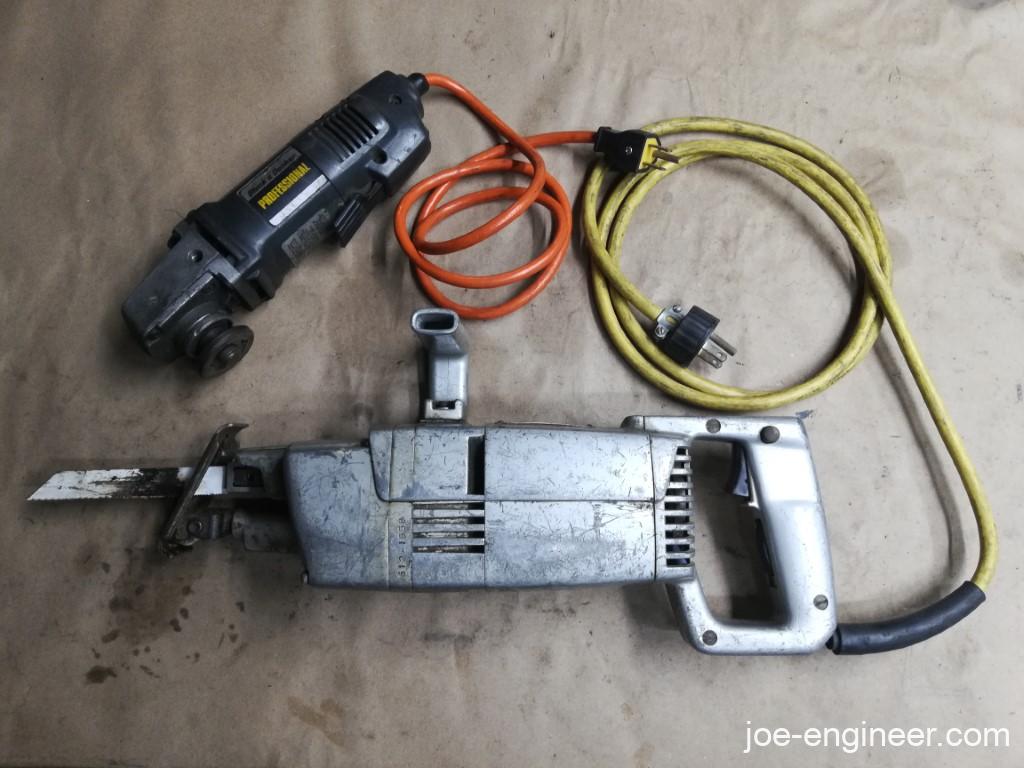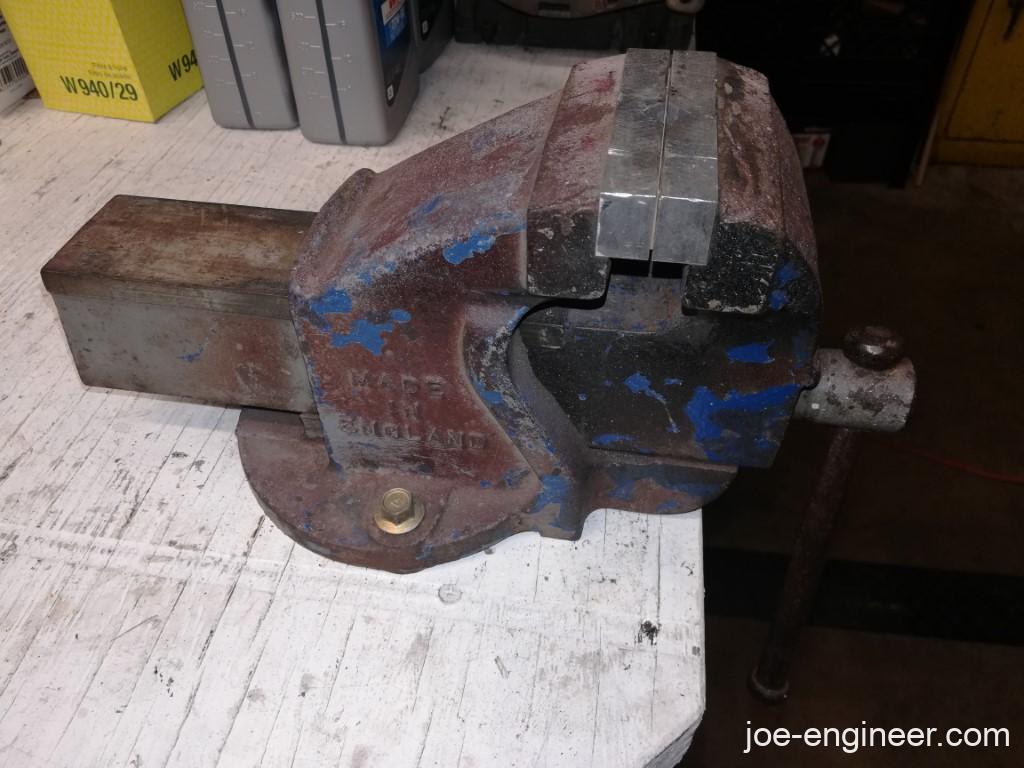
DIY: How To Build a Set of Home Mechanic’s Tools on a Budget
“Man, I wish I could work on cars but I don’t have any tools”
“Man, I wish I could work on cars but tools are expensive”
“Man, I wish I could work on cars but _____(insert excuse here)___”
Note: The following information is for educational use only. Before proceeding please read my disclaimer page.
Disclosure: This post contains links to Amazon products and other trusted vendors. As an Amazon Associate I earn from qualifying purchases.
At first glance this may seem like a silly topic to write about. Buying tools is easy, duh! However I cant tell you how many friends I have known that love cars and want to work on them but are paralyzed by the thought of the thousands of dollars in tools and equipment they will need to buy in order to work on that project they have always wanted. To the point where they think there is no way they will ever be able to buy their dream project because they don’t have a garage outfitted with a lift, compressed air, and 220V. While these things are nice to have, you don’t have to start off with a pro-level setup to work on your car and have fun. Here is an easy way to start with a basic tool set and work your way up.
Note: This applies for the weekend wrench, not the professional. The weekend wrench can get by with a decent quality (but not pro quality) tool set that will see occasional use at best. Pros should always use the best quality tools they can because their ability to do their jobs effectively, safely, and on time depends on them. Having said that, also stay away from the cheapest quality tools because they can break and cause injury, or make a repair situation worse like round out fastener heads. Stick with mainstream well-known brands as much as possible.
Starting From Scratch
If you have absolutely zero tools, go and get one of those several-hundred-piece Craftsman, Husky, or Kobalt starter hand tool sets online or from your favorite big box store. They should have box wrenches, hex wrenches, 1/4”, 3/8” and 1/2” drive ratchets and sockets in both metric and imperial. These commonly have lifetime warranties and you can typically walk into the store and get individual pieces replaced, should you ever break any. They will often have a really basic blow molded plastic case to keep everything organized. You can buy these heavily discounted during the holidays. With just this kit you can do most basic bolt-on tasks.

When you can, get a few other essential tools such as pliers (slip joint, channel lock, vice grip, and needle nose) and cutters (nippers, side cutters, wire cutters, and stripper).
Get and read repair manuals for the cars you want to work on as they often state what kind of tools are a must for particular jobs. This makes it easy to prioritize what tools to get first. Especially if you are OCD like me and plan your list of repairs a year or two out. 🙂
Tool Storage
Get a good tool box to fit your current needs. If you live in an apartment, a sturdy handheld box with several drawers is a good starting point. If you want to transport your whole 400-piece tool set plus some more, there are portable wheeled toolboxes with retractable handles that work like carry-on luggage. The only requirement I make is that the box has handles and locking latches capable of supporting a fully loaded box and that it doesn’t easily spill all its contents if you accidentally bump into it with your foot.

If you have a closed garage (even a 1 car) get a good rolling tool chest. Even a small one will make tool organization and storage so much easier than any of the smaller previously mentioned ones. If you plan on ever building a sizeable collection, try to get as big a rolling tool box as you can. Get a rolling box that could be your foundation for other boxes that stack on top. Make sure your rolling box has ball bearing slides, locking drawers with detents, and heavy duty locking casters. As you fill the lower box, buy the upper box next when money and space allows. I bought my lower and upper boxes about 6 years apart.

These kinds of boxes can get ridiculously expensive. Get as good a quality box as you can at first but be realistic about your needs. It is perfectly ok to buy a used box. Not everyone needs a pro-level Snap-On, Matco, or MAC box. There are some solid mid-range units at most big box stores. Harbor freight boxes are shockingly good for their price.
Power Tools

One thing to note with online reviews is to look for tool hacks. Search the review comments for common things people do to improve the function of cheap tools. For example, I recall reading the comments for an old $10 harbor freight angle grinder that had a five star rating because of two reasons: they were cheap enough to keep buying if they died and there were users who opened up the gear cases and packed them with grease to reduce heat, noise, and greatly extend their life. YouTube also has a ton of review and tool hack videos.

New vs Used
There is no shame in buying used tools. Used tools and tool storage provide all the function of new tools at a deep discount. It’s ok to buy tools with patina as long as they still function well. A great idea is to buy fixer upper tools. This usually appears in the form of power tools with damaged cords or missing batteries.

A quality drill press or bench vise that only needs a bit of rust removal, paint, and oiling will probably outlive you.

Metal files with missing handles can be repaired or used as-is. Incomplete sets of anything (sockets, hex bits, drill bits) are still useful if you organize them so you know what you have. Get socket holders or socket rails to keep sets of different sockets organized together. I have a drawer full of random wrenches and sockets that still come in handy.
Cheap vs Quality
Get used quality tools over cheap new tools whenever possible. Old American and European tools were designed to last a lifetime. That said, if you are not a pro and need a tool for an infrequent job, a cheap tool might work well in a pinch. Tools from newer markets such as China and India are rapidly catching up in terms of quality and can be a good value. As mentioned before, most big box brands like Kobalt and Husky already have lifetime warranties on many hand tools. Even Harbor Freight wrenches, sockets, breaker bars are pretty solid nowadays.
Warning: Tools that are not ok to cut corners on are safety items such as jacks, jack stands and any protective gear for your face, eyes, hearing, breathing and so on. These can save your life as well as irreplaceable parts of your body. You have been warned.
Cheap tools that are not as critical but usually cause more problems than they solve are screwdrivers, pliers, cutters, and threading taps.
Sources for Tool Deals
As mentioned before, to get deals on new tools, look for deals during the holidays. Get large full sets from big box stores such as Home Depot and Lowes or online tool retailers that offer free shipping such as Jegs, Summit, Walmart, and Amazon. For used tools, buy from classic or hot rod swap meets where retired mechanics or machinists are selling off quality tools they don’t need anymore. Garage & estate sales frequently turn up the same kind of retired wrenches or enthusiasts trying to pass on their tool collections. Here you can run into the “make me an offer, need the garage space” types of deals. Scour the web for small businesses closing such as mechanic shops and machine shops. Sometimes these are found through word of mouth or in the classifieds sections of online car forums. There are also tool outlets that sell new refurbished tools at a good discount.
Online sources continue to be very effective to find deals on used tools. Some deals can still be had on eBay but are more difficult lately due to a lot of competition from flippers. Also, shipping tools can be costly due to weight. Craigslist is still a good place to find the local garage, estate, and business sales. You do have to react quickly due to competition from flippers. Unfortunately you will have to sift through the “NO LOWBALLERS I KNOW WHAT I HAVE” kind of sellers. NextDoor.com is good for very local sales within your surrounding neighborhoods. Here you may get better deals from trusted neighbors. Newer online classifieds such as LetGo, Offer Up, and Facebook Marketplace are gaining traction but I don’t have too much experience on them, however like anything you may find good deals there too if you search hard enough.
A fantastic source are enthusiast forums for particular kinds of cars. These are a good place to find specialized tools like certain engine building tools or vehicle-specific fixtures.
Special Tools
Model-specific specialized tools can be very expensive due to being produced in low volumes. If you find yourself needing one decide if this is a tool you are ok with buying and storing for a long time in between uses, because that’s what will happen unless you are a professional and are using it on a regular basis. Try to borrow or rent special tools if you see yourself only using them one time. A last option is to buy, use, and re-sell a special tool. Your loss can be thought of as a “rental fee”. If you buy a special tool used you can very likely recoup almost 100% of cost.
I am on the fence regarding inexpensive precision measuring instruments such as dial calipers and micrometers. Not everyone can afford Starrett and Mitutoyo tools, however those are robust and will last forever. Cheaper brands like Fowler are accurate and work well when treated with care, however the first time they bounce off the ground they will be junk. Try to stay away from cheap torque wrenches as well.
Patience
A recurring theme on this blog is to be patient. Grow your collection slowly. It’s ok to have mismatched tools of different brands. Only buy what you need at the time or if you come across a really good deal on a tool you know you will need later. Before you know it you will have a full set of tools to tackle nearly any DIY job.
Happy tool hunting!